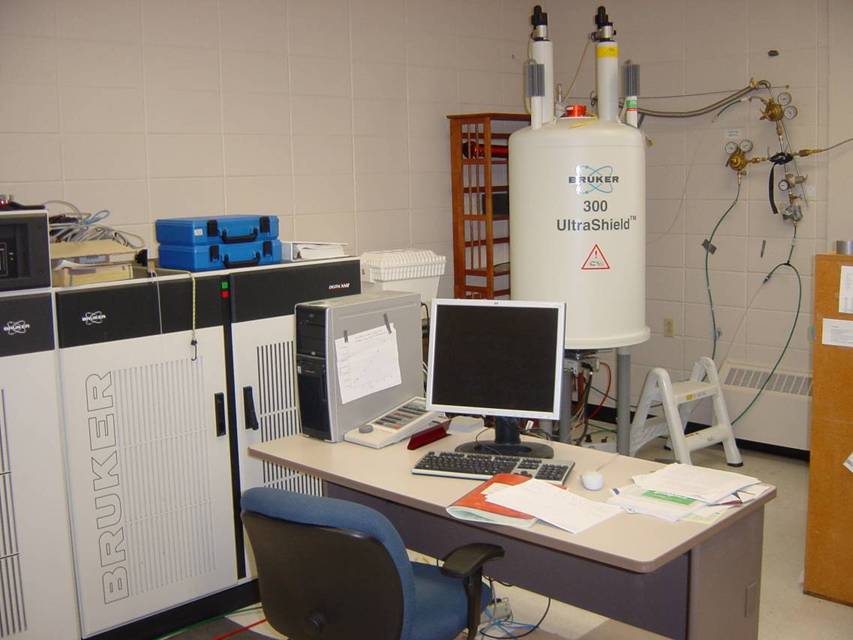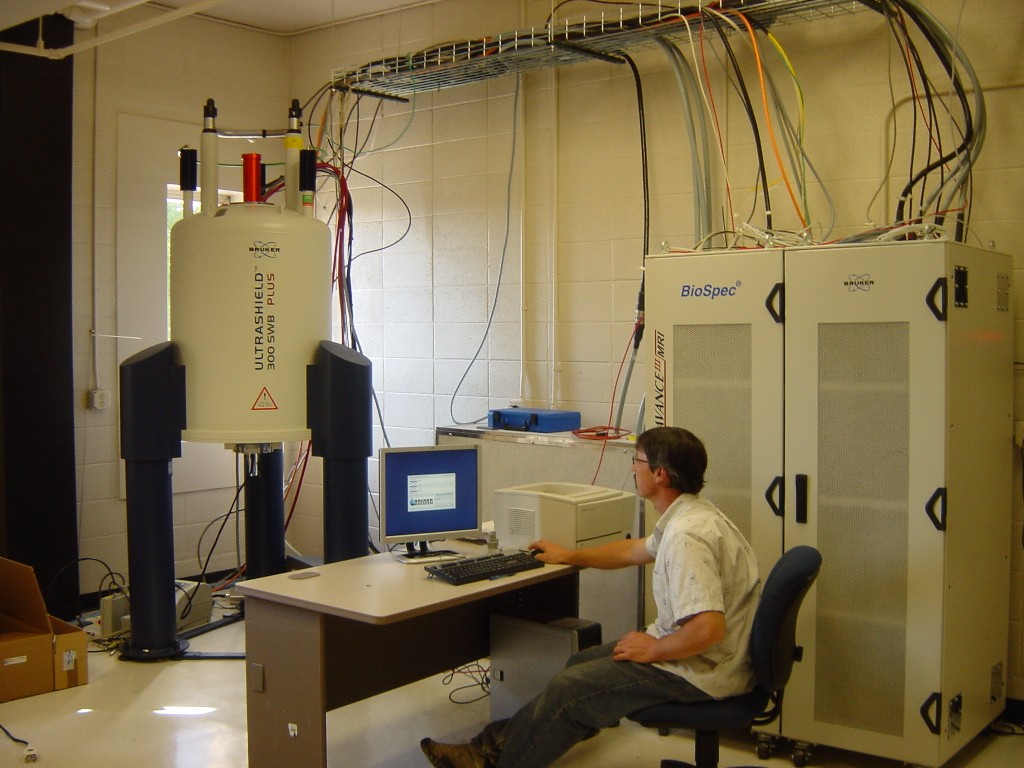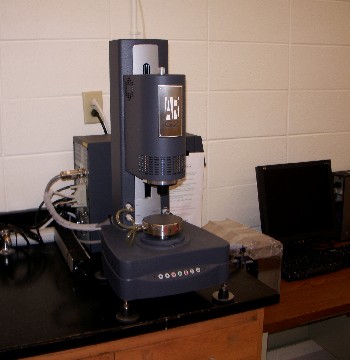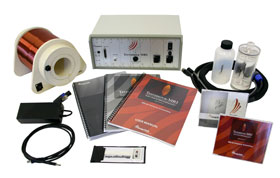Techniques and Equipment
Magnetic Resonance Imaging (MRI) is a noninvasive experimental technique which has found broad application in clinical medicine and is a maturing method for studies in engineering and physics. Our group uses instruments that allow MRI to be applied with a resolution of 10 µm over 10 mm diameter samples. MRI applied on this scale requires more sample specific tailoring of the pulse sequences and is more often termed Magnetic Resonance Microscopy (MRM) to distinguish it from medical scale imaging.
Our work is concerned with furthering application of MRM methods in the study of transport phenomena and material characterization. We use pulsed gradient spin echo (PGSE) techniques to measure velocity and effective diffusion, e.g. dispersion. The ability to spatially resolve velocity and diffusion fields allows for transport visualization. Application of PGSE methods without spatial resolution provide the scale dependent statistics of motion over the entire sample, rendering it a powerful technique for studying anomalous transport phenomena. The research program seeks to both elucidate new transport phenomena in complex systems and develop MRM methods for new applications.
Rheology: We have a top of the range TA instrument rheometer that can measure both shear stress under controlled shear rate and shear rate under controlled shear stress conditions as well as a range of oscillatory experiments. We also use a RheoNMR insert that allows rheology measurements to be made using the NMR spectrometer
Simulations: We use Comsol to simulate simple fluids (Newtonian, power-law) in simple 2D structures
(capillary networks, Couette cells, cone and plate cells) and compare to our experimental
results from more complicated fluids (colloidal suspensions, blood, viscoelastic).
We also collaborate with an expert in the Lattice-Boltzmann simulation technique.
This method is more challenging to use but yields simulations of richer and more complex
2D porous media structures.

Bruker AVANCE250
Micro5 Probe
Maximum Gradient: 3 T/m 60A
Max Sample Dimension: 1 cm
Micro2.5 Probe
Maximum Gradient: 1.5 T/m 60A
Max Sample Dimension: 3 cm
Diff30 Probe
Maximum Gradient: 17 T/m 60A
Max Sample Dimension: 1 cm

Bruker AVANCE300
Micro2.5 Probe
Maximum Gradient: 1.5 T/m 60A
Max Sample Dimension: 3cm
SuperWideBore Probe
Maximum Gradient: 0.37 T/m 100A
Max Sample Dimension: 6cm
We have two state-of the art NMR/MRI instruments. These instruments are invaluable in the medical field for diagnosis of soft tissue damage and used routinely by biochemists to probe molecular structure. We use these instruments to obtain images as well as velocity and diffusion measurements in all the important systems described above. Magnetic Resonance techniques have the unique capability of allowing transport studies in opaque systems and can make non-invasive measurements that do not disturb the very flow in which we are interested.

RheoNMR
Rehometer that operates inside the NMR spectrometer. Couette and cone and plate cells availabel. Max rotation rate: 14 Hz

Rheometer
TA Instruments
We have a top of the range TA instrument rheometer that can measure both shear stress
under controlled shear rate and shear rate under controlled shear stress conditions
as well as a range of oscillatory experiments.

Earths Field MRI
Portable MRI Instrument that uses the earth's magnetic field. Used for training and undergraduate research projects.
